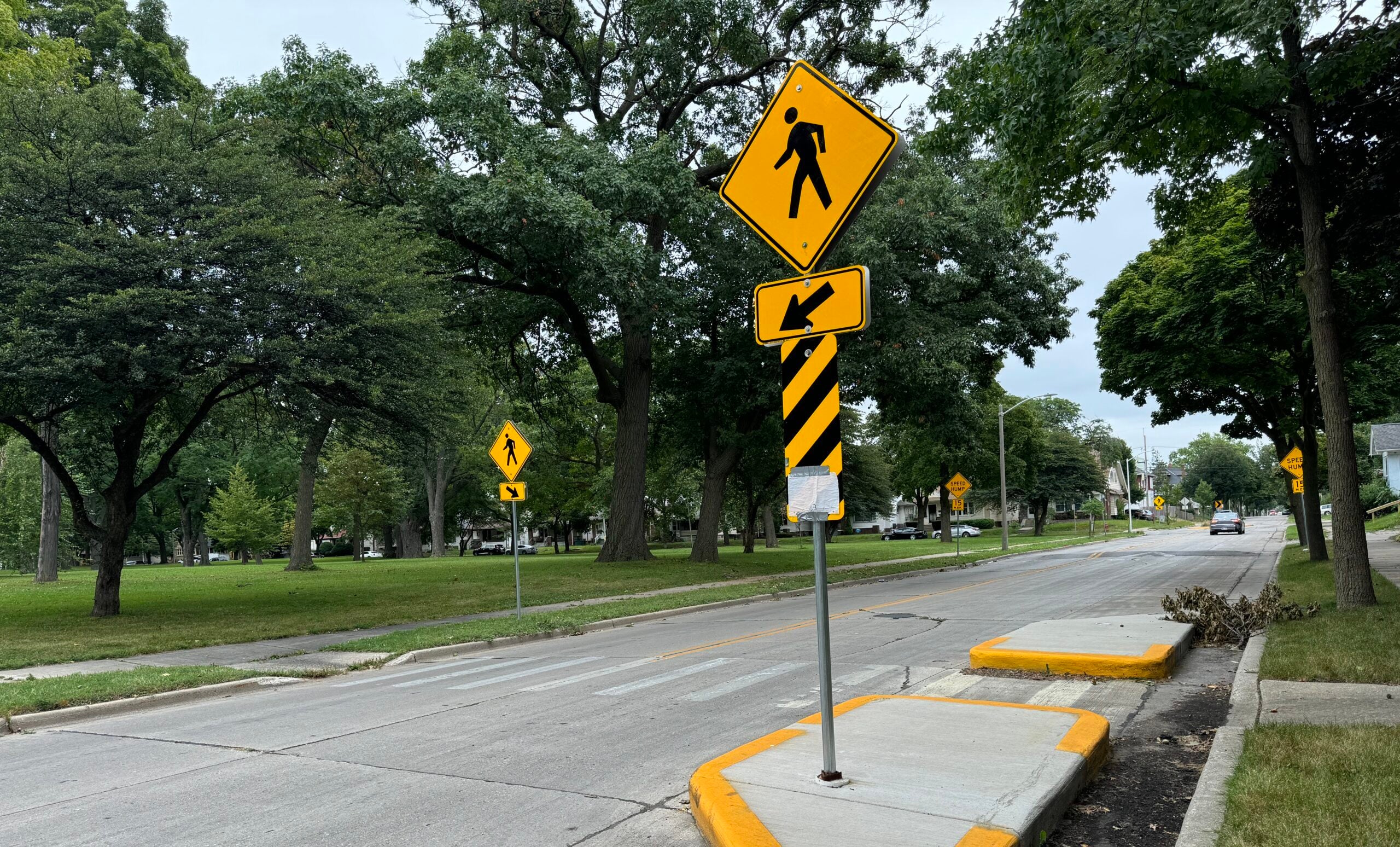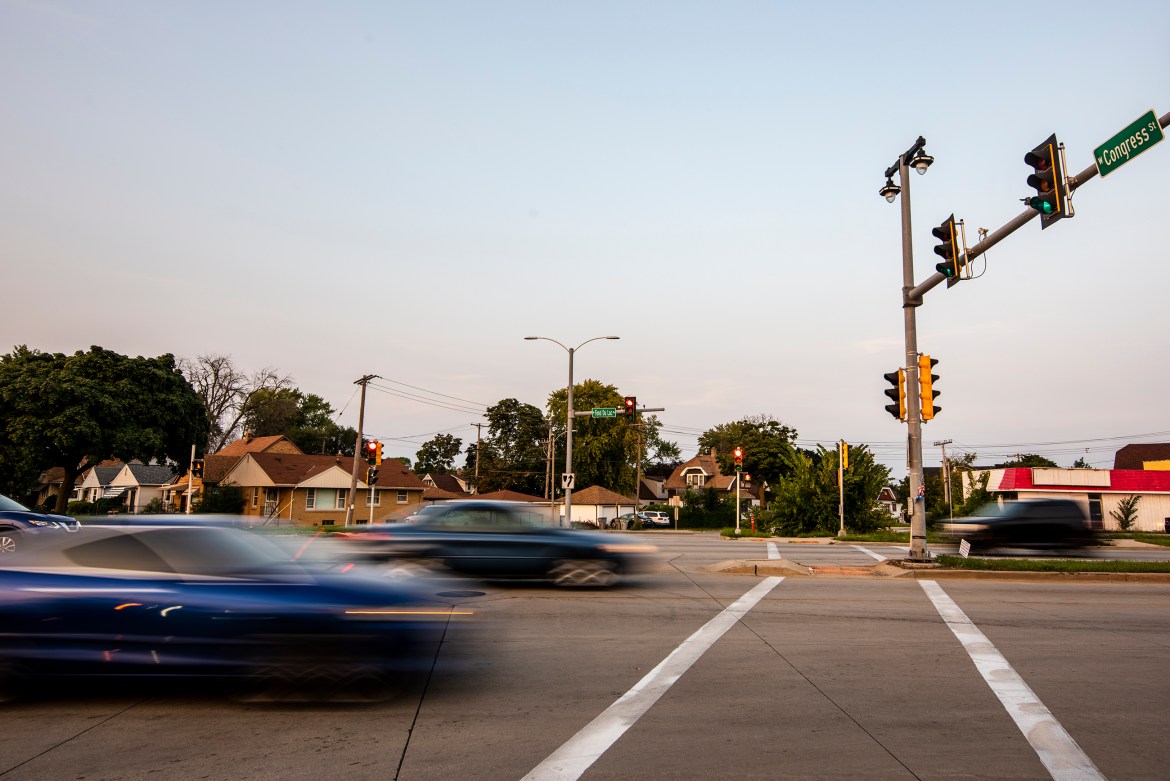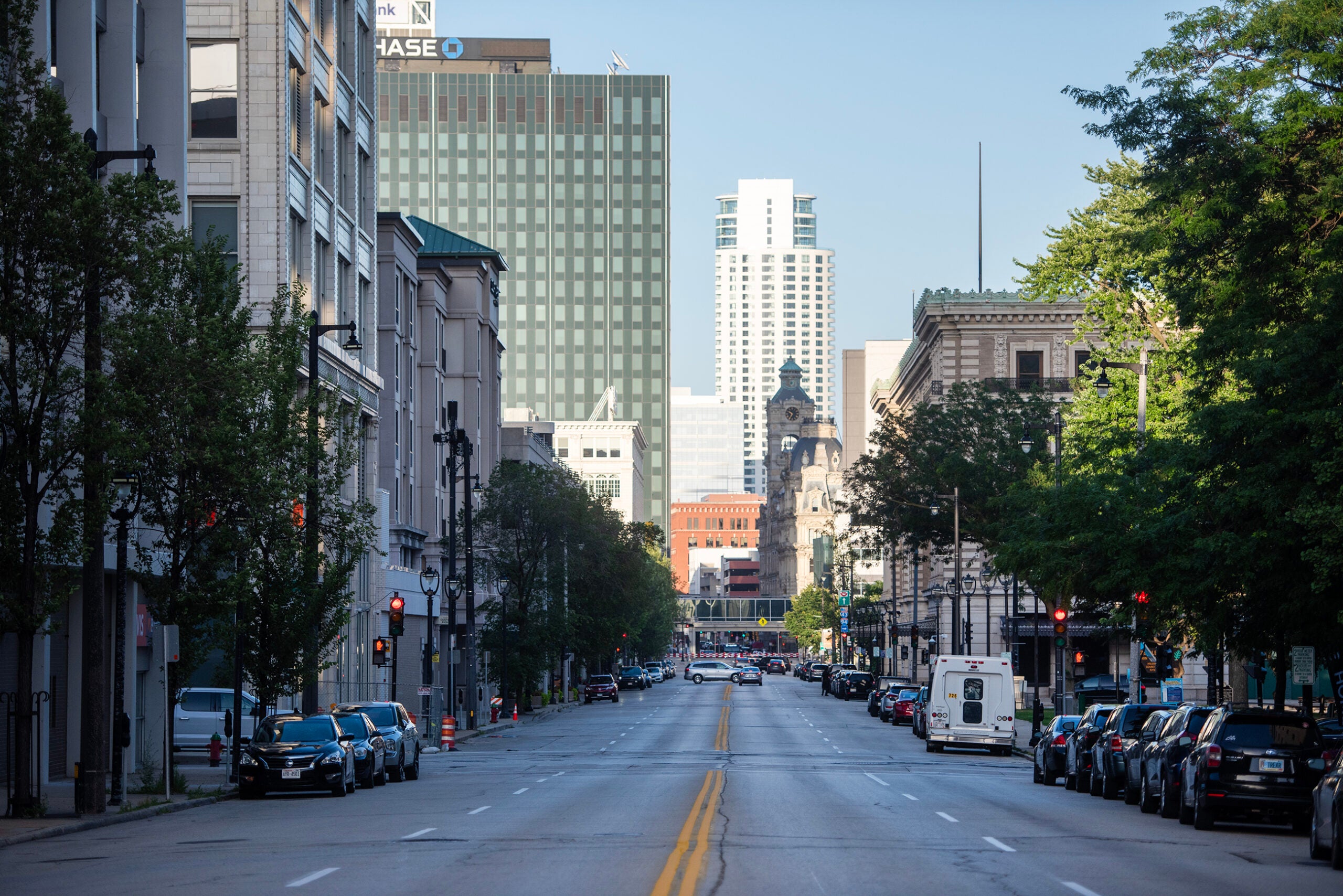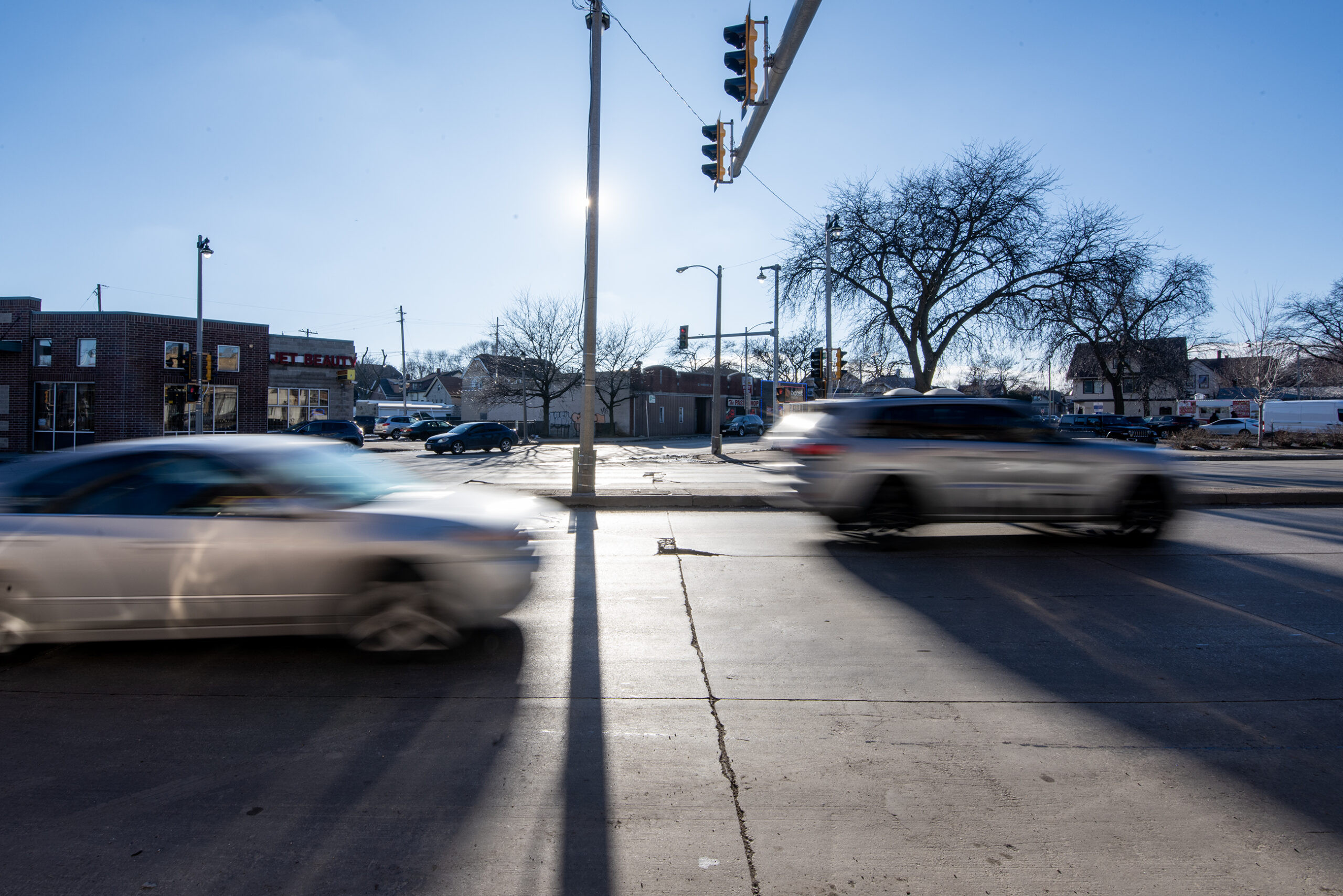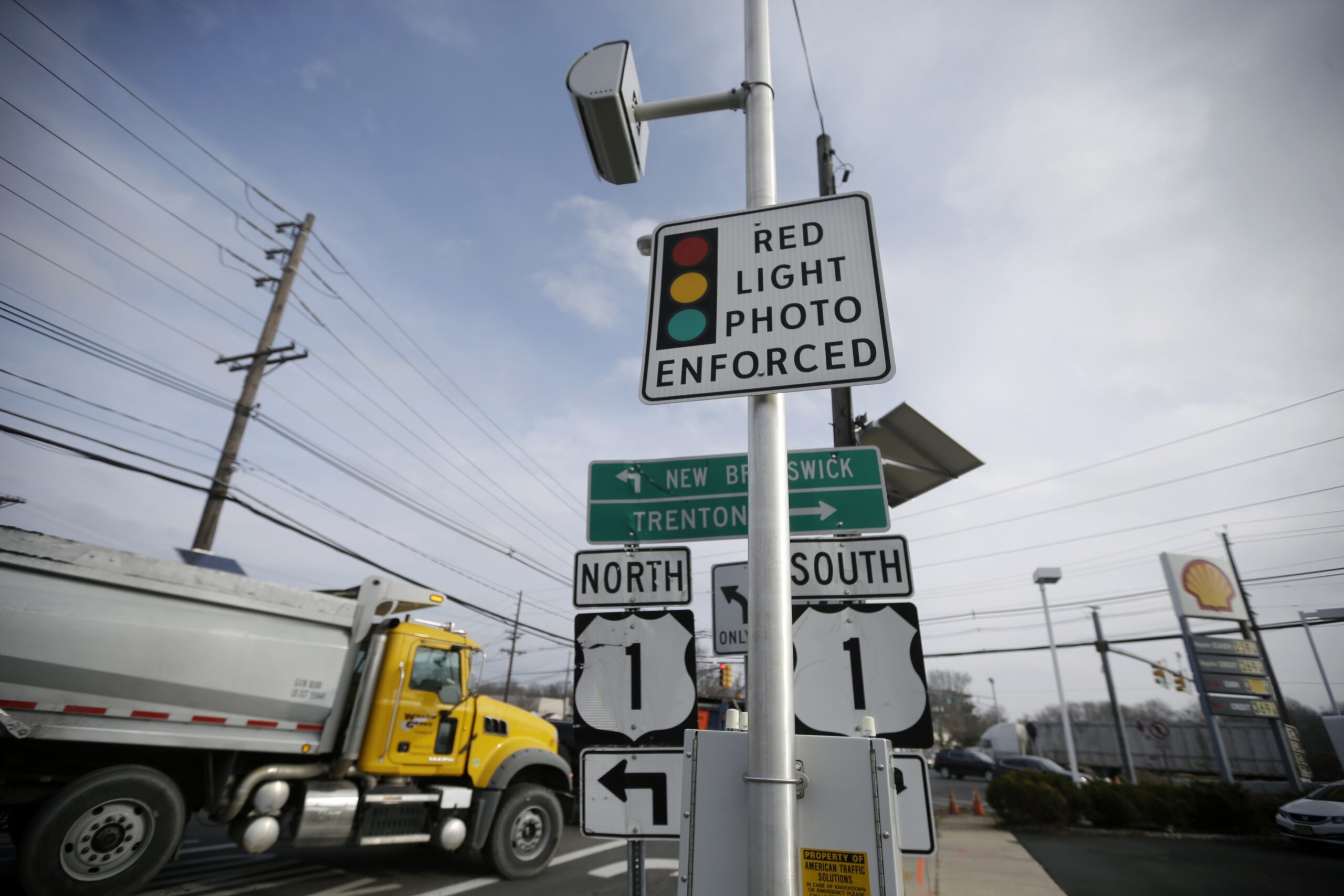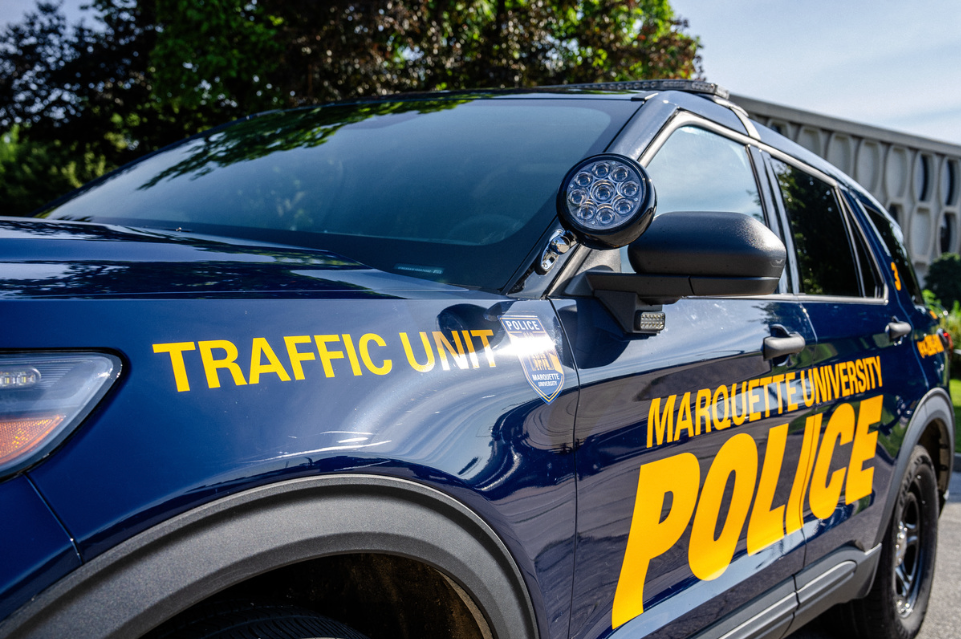Clara Tracey lives in Milwaukee’s Martin Drive neighborhood. Most days, she and her young daughter walk to Davidson Park, which she said has been easier and felt safer since the city installed curb extensions and a protected bike lane along their route.
“People slow down, people stop for us when we’re in the crosswalk, which almost never happened before,” Tracey said.
Those curb extensions, or bump outs, and bike lanes are part of a traffic calming project aimed at reducing reckless driving across the city. On Wednesday, city officials shared data on those projects which found they’re working to reduce speeding.
News with a little more humanity
WPR’s “Wisconsin Today” newsletter keeps you connected to the state you love without feeling overwhelmed. No paywall. No agenda. No corporate filter.
One of those projects, next to Tracey’s home, reduced speeding by 24 percent and reduced people driving 10 miles over the speed limit by 13 percent, according to city data.
“The traffic calming is working,” said Jessica Wineberg, Milwaukee’s Vision Zero policy director. “Where the city of Milwaukee has changed the streets, we’re seeing lower speeds and fewer crashes.”
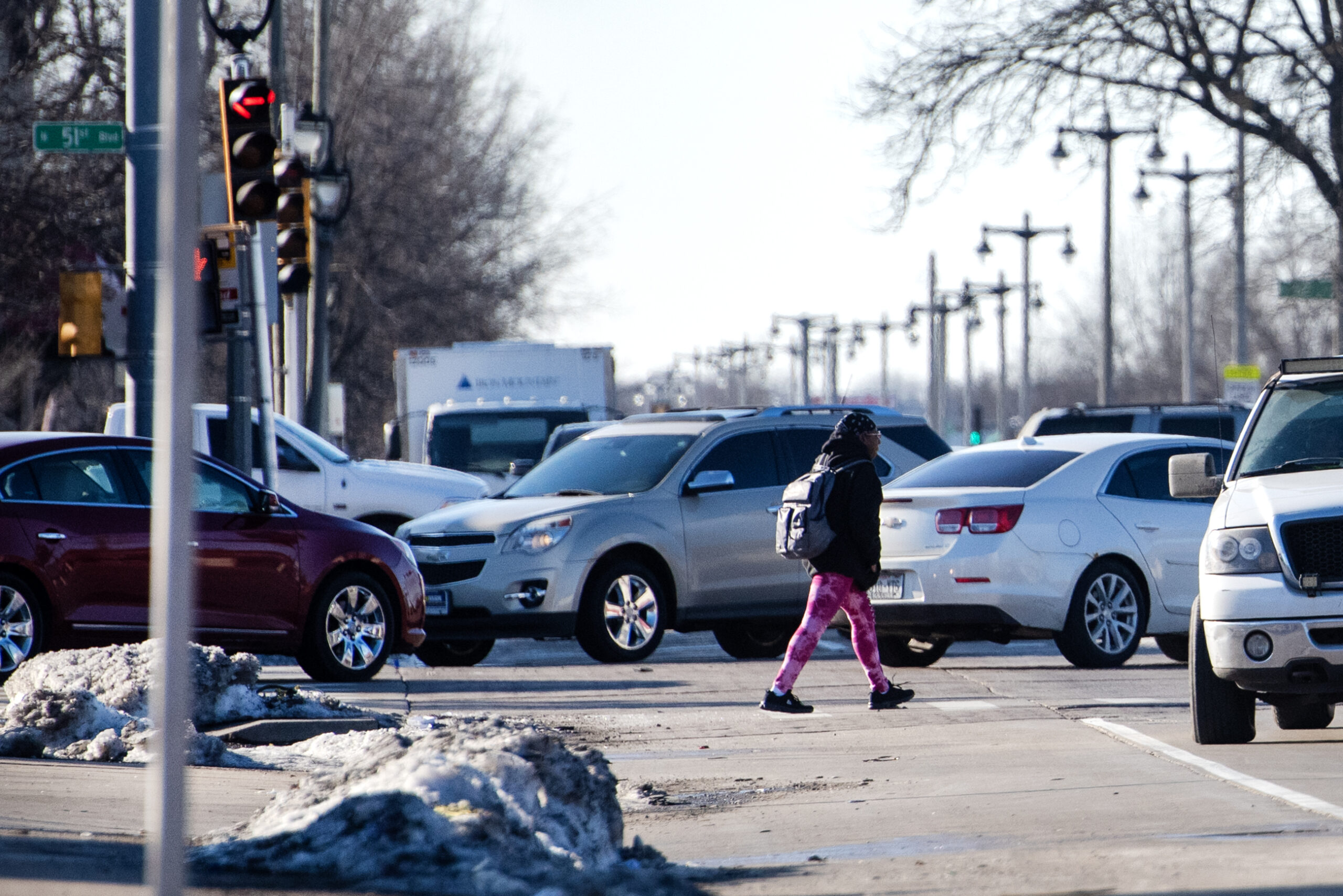
The Milwaukee Department of Public Works shared data for 14 projects across the city Wednesday. City engineer Kevin Muhs said the data, which was collected in the past year, varied from “some success” to “a lot of success.”
“We think the data we’ve collected, it’s very gratifying and it’s showing that the infrastructure changes we’re implementing are working,” Muhs said.
Reckless driving has plagued the city for years, leading officials to take a number of steps to address the issue. City officials say they’re working on enforcement and education efforts to further curb the issue, as well as street redesign.
Earlier this year, the Milwaukee Department of Public Works announced new projects across the city that include raised crosswalks, curb extension and major reconstruction projects on certain streets. More protected bike lanes, speed bumps and road diets — or reducing the number of lanes on a road — will also be added across the city.
“As incredible as the impacts of these projects are, as all of us know, speeding is still something that’s very, very important for us to keep addressing here in Milwaukee,” Milwaukee Mayor Cavalier Johnson said during a Wednesday press conference.
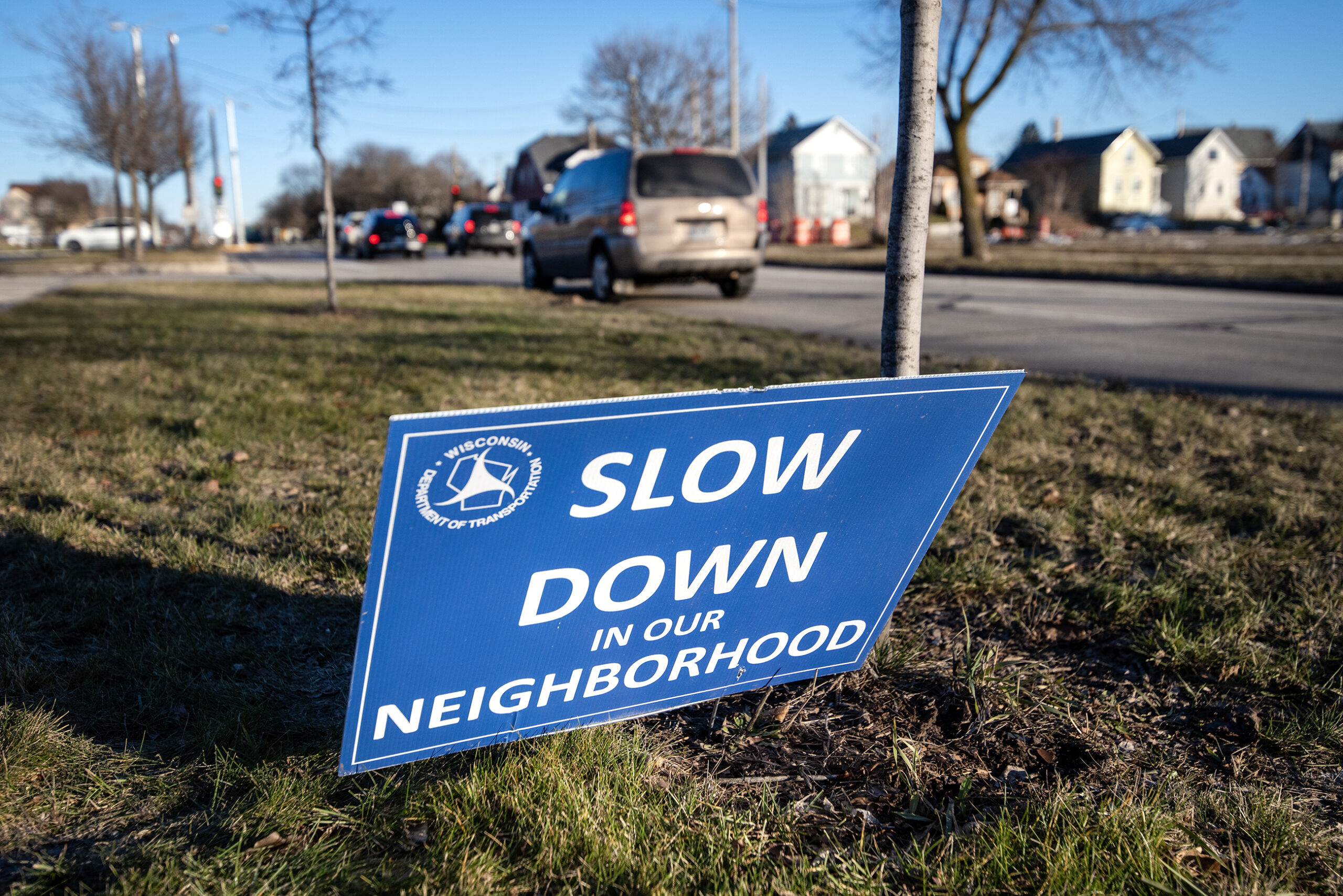
A county dashboard reveals there were 19,500 traffic crashes in the city of Milwaukee in 2021. That number decreased to 17,500 in 2022 and 16,600 in 2023.
There have been 8,600 traffic crashes in the city so far this year, according to the latest data from the county.
But not all residents are happy with the road design changes. Milwaukee resident Beth Pickhard drives a car that is lower to the ground. She said she has to drive extremely slow when going over new speed bumps so she doesn’t damage the car.
“It causes more headache for drivers, even drivers who want to be driving slow,” Pickhard said, adding that some of the curb bump outs back up traffic.
“It’s not like I do not like these things. It’s just that sometimes they’ve been put in and they’ve been a big headache. And we (residents) don’t always know when they’re going in, too,” she said.
The city also placed planters on the east side to protect bike lanes from vehicles last year. But some planters were soon destroyed by drivers, leading to frustrated comments on the neighborhood Facebook group.
In one area on North Avenue, many of the plastic posts that were installed by the city appear to have been driven over by vehicles. Muhs said they replace those posts at least once a year if they are damaged.
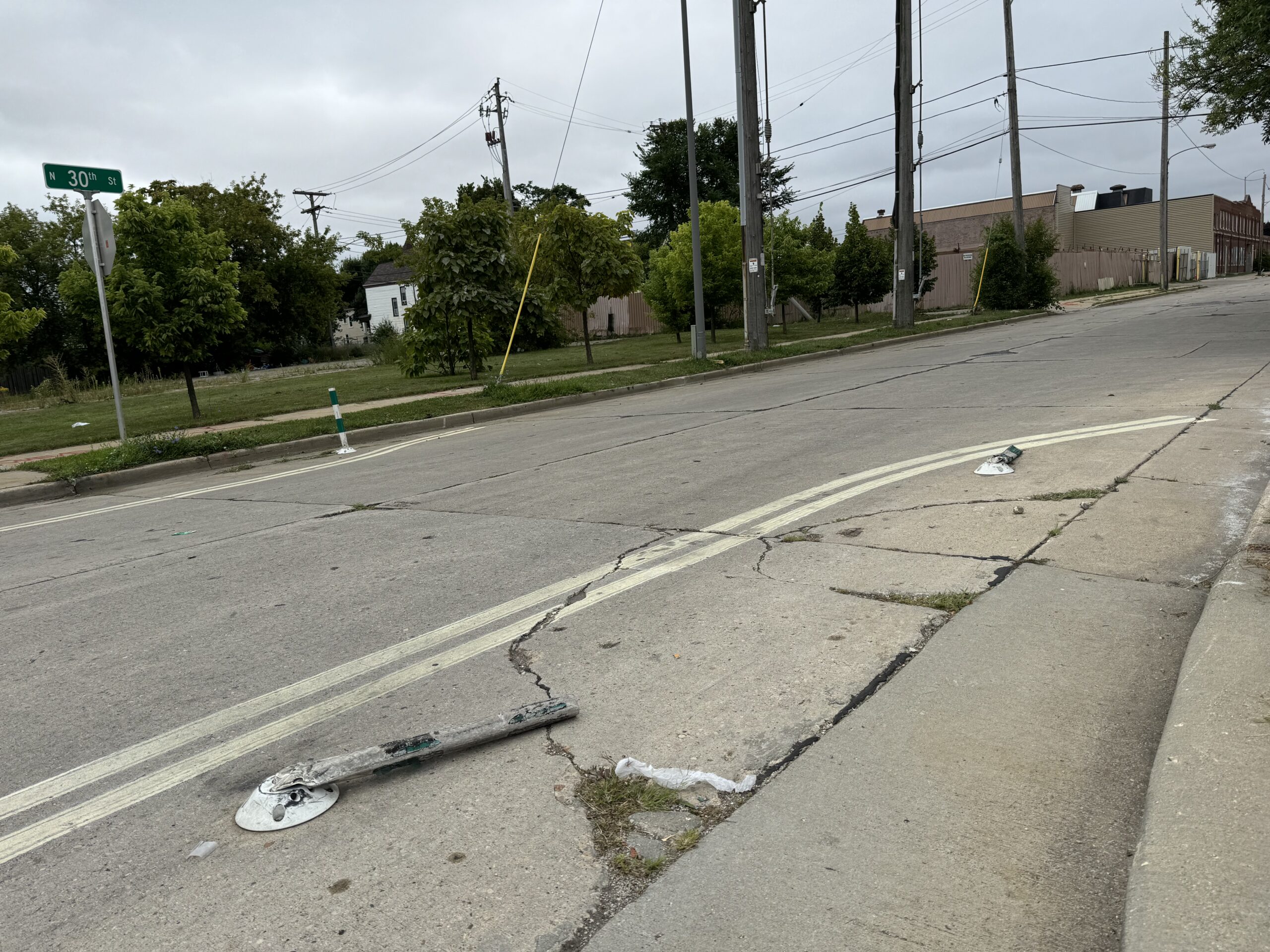
Wineberg, with Milwaukee’s Vision Zero, said she’s had some residents complain that the changes slow traffic down too much.
“I also hear from people who have lost loved ones in crashes, completely senselessly, and when I hear those stories, I do know that safety is more important than convenience,” Wineberg said. “I think we can all open our hearts a little and realize our driving impacts other people.”
Tracey said she feels safer as a pedestrian and cyclist where changes have been made.
“Friends of mine who drive big cars have complained,” she said. “And I said, ‘Suck it up.’”
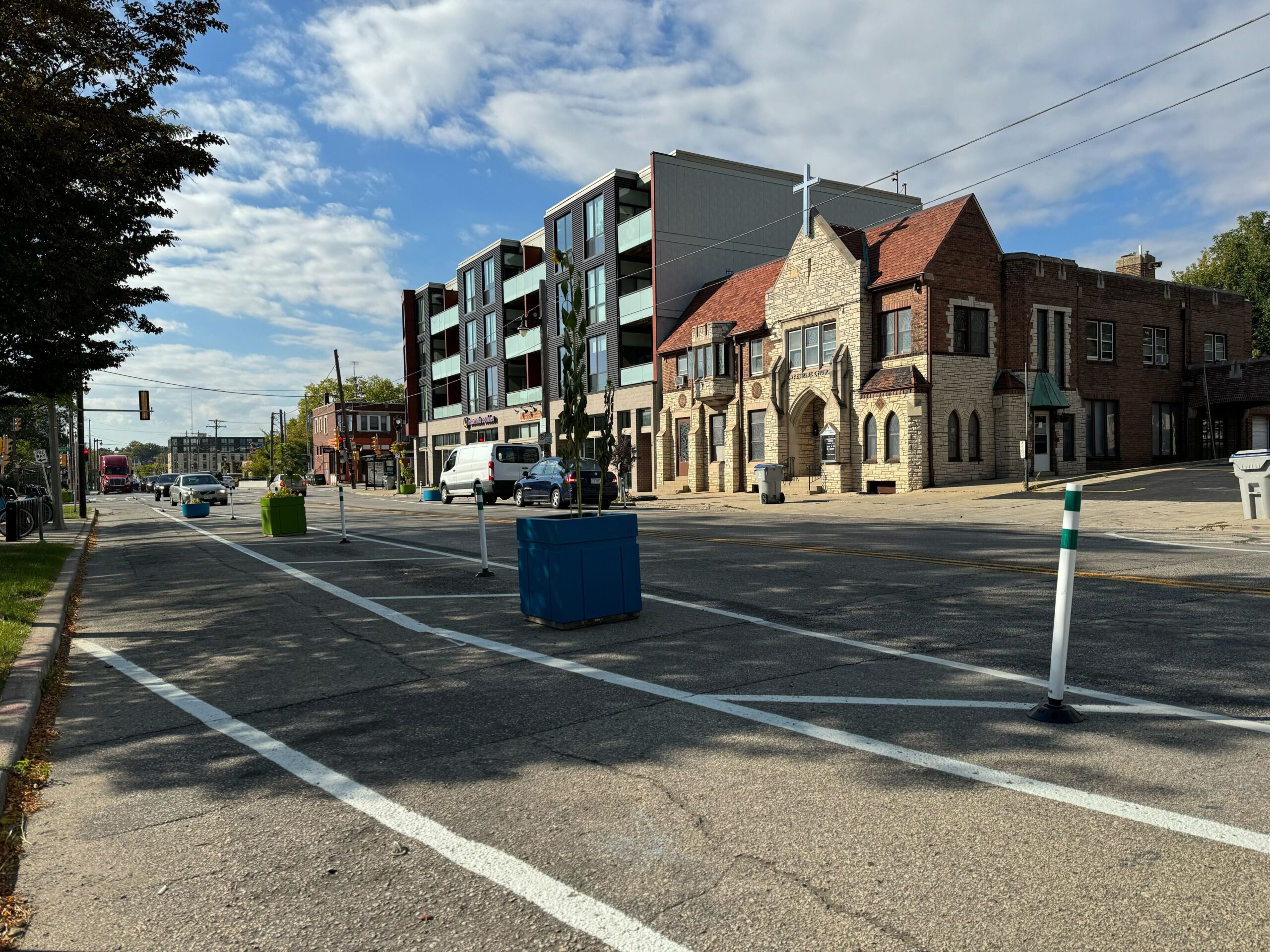
Wisconsin Public Radio, © Copyright 2026, Board of Regents of the University of Wisconsin System and Wisconsin Educational Communications Board.

